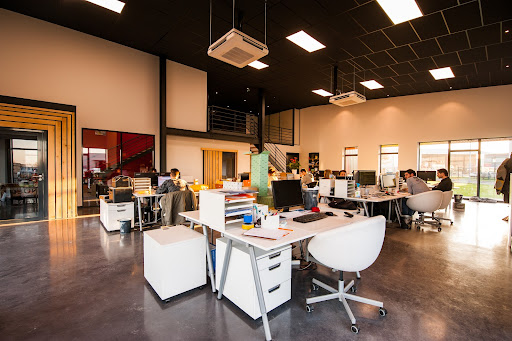Photo by Cadeau Maestro from Pexels
Before the pandemic, most employees worked on-site in an office. Many freelancers already worked from home but there was variation even here. For example, a lot of people working in the wellness sector were (and are) freelance but still worked on-site. With COVID19 finally in retreat, now is a great time to weigh up whether you want to stay remote or work on-site.
Remember, you can vary your working locations
When thinking about whether or not to return to the real-world office, remember that you do have the option to mix up your workspaces. For example, if you’re running a small business, you might have some employees fully on-site, some employees full off-site, and some employees working on-site some of the time and off-site some of the time.
If you’re a freelancer you might decide to use a designated commercial space some of the time and work from home some of the time. Depending on your business (and pandemic restrictions), you might also choose to travel to your clients. Alternatively, you might want to have them visit you.
Types of commercial spaces
For practical purposes, commercial spaces can be categorized into three groups. The first is spaces you own. The second is spaces you rent exclusively. The third is shared offices. Before the pandemic, the first two options were the staple choices of established businesses.
The third option, however, was already a growing niche. It was most popular with start-ups and freelancers but was also sometimes used as “overflow space” for larger companies. Shared offices tend to be serviced. This means that their headline price can be more expensive than the other options. Sometimes, however, this can be justified by the convenience they offer.
In many serviced offices, the service provider either does or can take care of everything. In general, they will always take care of anything to do with the building itself. That covers a wide remit from window replacement to garbage disposal.
Additionally, these companies tend to offer a range of value-add services such as reception, phone-answering, and mail-scanning. You’ll typically be able to buy these services in a combination of bundles and add-ons. This can be vastly easier than organizing your own staff/freelancers. It also ensures you get a guaranteed service.
Advantages of commercial spaces
The headline advantage of commercial spaces is that they clearly separate your business from your home. You may find yourself working long days, especially if you’re working to recover from the effects of COVID19. At the end of them, however, you can close the door and literally walk away to spend your free time elsewhere. They can also be very useful if you need to meet clients.
You may also find commercial spaces a better option for collaborative work. This does, however, very much depend both on your team and your work. If your team enjoys getting together then designated commercial spaces tend to be a better option than the likes of restaurants and bars. If nothing else, they provide more privacy.
Having meetings in the real world can also provide more opportunities for creativity. This doesn’t just mean meetings between creatives. It means meetings leveraging the power of flip charts, multicolored sticky notes, multicolored pens, and visual presentation methods like doodling. These can, in principle, all be replicated online but the mechanics of making this happen can be challenging.
Another, easy-to-overlook, advantage of commercial spaces is that they generally offer peace rather than silence. On the one hand, you are highly unlikely to be disturbed by sounds like dogs barking, children playing or neighbors doing DIY. On the other hand, there’s likely to be the sort of steady background hum you get in the average office, so you don’t feel isolated.
Advantages of working from home
The headline advantage of working from home is that it’s free. This does, however, need to be qualified. You are unlikely to need to pay more for your mortgage. You may need to pay more for your rent. This is likely to depend on what sort of business you’re running. You should expect to need to pay more on your home insurance and utilities, including water. You may also need to upgrade your internet.
That said, all of these costs are likely to come to much less than the cost of renting a commercial space. This means that, economically, working from home is often the clear winner. The key question, therefore, is whether or not it really suits your overall working style. In other words, can you really deal with working in isolation over the long term? Only you can answer that question.







